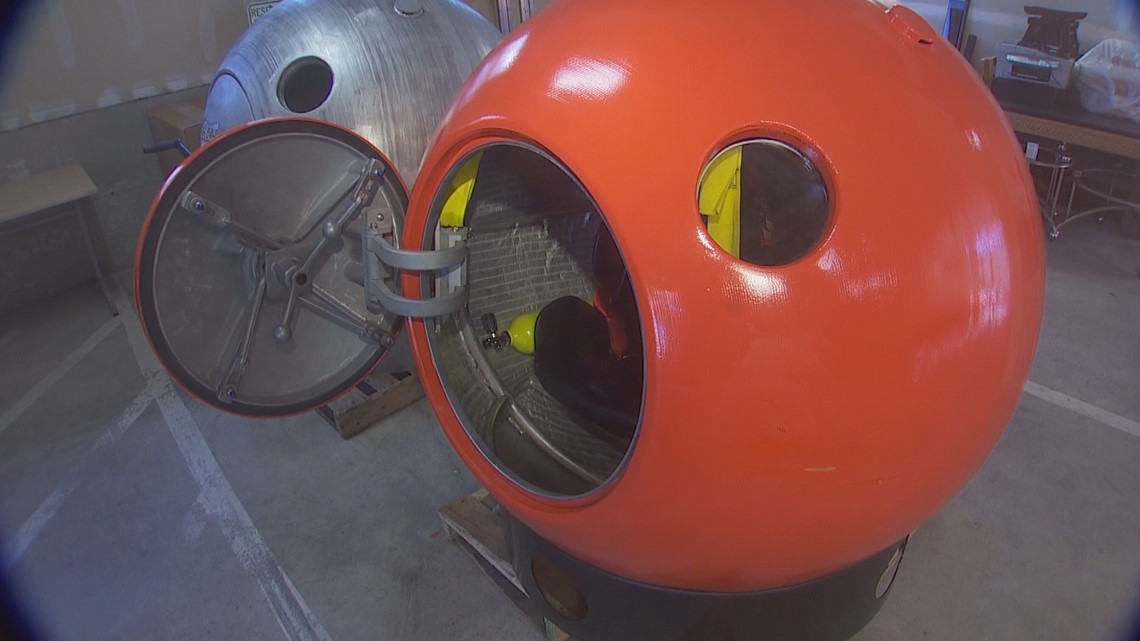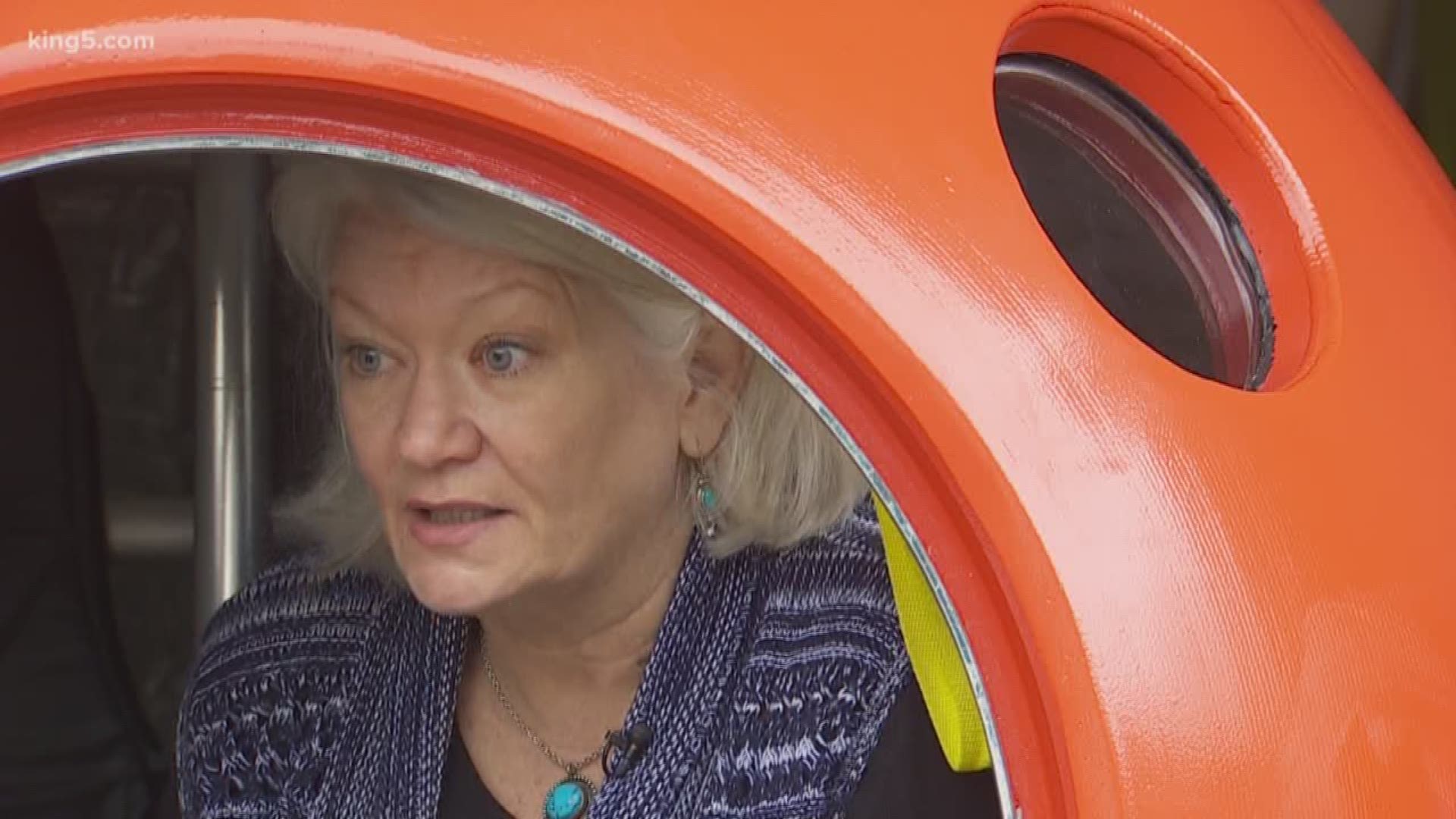MUKILTEO, Wash. — What if you didn’t have to evacuate from a tsunami? Several companies have created shelter systems that allow you ride out the waves without traveling far.
A device designed to save people from an earthquake-generated tsunami waves got its start as a contest submission to NASA. In 2011, aerospace engineer Julian Sharpe with a Mukilteo, Wash.-based company came up with a concept for an aluminum sphere and sent it off to NASA’s 2011 Create the Future contest. The concept was a finalist and led to a new company called Survival Capsule.
“It’s a system that allows you to evacuate immediately,” said Sharpe. “…to ride the tsunami out.”
Sharpe’s other company Idea Inc. designs cargo handling systems and modifications for commercial airliners. But in watching the devastation during the 2004 tsunami that devastated parts of Indonesia and Thailand at the cost of nearly a quarter million lives, he figured there must be a better way.
“In my 50-year career in doing tsunami research...every time we discover something new, the hazard is worse than we thought,” said Dr. Eddie Bernard, one of the world’s leading tsunami scientists and former head of the Pacific Marine Environmental Laboratory for the National Oceanic and Atmospheric Administration. Bernard is also a consultant with Survival Capsule.
The idea behind the Survival Capsule is that it is designed to float not only on top of the water but on top of debris. Sharpe says it uses aerospace designs to avoid being crushed in the swirl of large and small debris the tsunami creates.
The smallest version has two seats inside, and plans are on the drawing board for one holding 16. Survival Capsule hopes to have the smaller capsules available once a contract with a manufacturer is secured.
The capsule could be tethered to the ground or float free. It’s painted orange to make it stand out in a debris pile that washes up on shore or even if it gets pulled out to sea. Inside would be food and other survival supplies. The capsule is insulated against the cold and even heat from floating fires, which have accompanied tsunamis. The fire could be sparked by fuel released from underground tanks or methane stirred up by tsunami waves.


Sharpe and Bernard have found the most demand for the capsules is in tsunami aware Japan. Japan’s awareness heightened in the aftermath off the 2011 Tohoku earthquake and tsunami, which cost an estimated 16,000 lives. Most of those deaths were attributed by authorities to the tsunamis.
Survival Capsule has some competition, even from within Washington and in Japan. RescuePod and STATIM Tsunami Shelter System each design similar products that offer shelter in a tsunami.
But not everybody is on board. Maximilian Dixon, who leads the earthquake and tsunami hazards program for Washington’s Emergency Management Division, wondered if there will be enough helicopters and other resources to chase them down in a mega quake and tsunami expected along the northwest coast.
Washington state is currently working with FEMA and other agencies to get tsunami evacuation towers built. But Bernard says the two lifesaving technologies complement each other.
“The towers serve a very important purpose if you’re in an area that’s easily accessible to the tower,” said Bernard. “But let’s say you go home that night, and it’s midnight, and that’s when the tsunami happens. You’d like to have the shelter in place option available, because you don’t have enough time to get to a tower.”
Currently, Washington state’s coastline has one vertical evacuation tower that’s part of a school in Westport. A second is nearing construction near Tokeland, Wash.

